Dworkin passes. Judge Hercules invents a search engine.
Ronnie Dworkin died on Valentine’s Day. I found out through a link in The Browser to a delightful blog post by Randy Barnett. I once sat next to Randy on a bus in Nashville. I never met Ronnie, but I took John Oakley’s Jurisprudence class, and got to meet Judge Hercules. Judge Hercules is Ronnie Dworkin’s smarter brother.
I wonder when Google died. Judge Hercules doesn’t know, but he thinks we need a search engine with integrity to give us the right answers. And then it won’t matter.
[Note: Part I is about searching for Ronnie Dworkin. It is very nerdy. Part II collects the juicy bits that Google is prepared to give up. If you want to raise your glass to Ronnie one final time, maybe skip straight to Part II ]
“I can’t remember agreeing with Dworkin ever, on anything more controversial than grammar.
But I will miss him.
“His kids complained he ignored their rights.
I
Most people either haven’t noticed or just don’t care. Its the big secret, the gorilla in the room. Does anyone remember the days when Google was a good search engine? There was Altavista, and Yahoo powered by Inktomi. And along came Larry and Sergey with an engine that didn’t just search. It found! And now Google is Too Big To Fail. And is failing. So let’s redefine “fail” and stay happy.
Saturday morning I typed “Dworkin” in the Google search box. Randy’s Volokh post was up there near the top at #11. Alongside it were obits from the New York Times, Washington Post, the LA Times and the UK Guardian. Remembering Sergey’s famous “hard interview question” – “tell me something new” – I wanted Google to tell me something new. I know the dry stuff about Dworkin. I’d like more from people who knew Ronnie, more about his famous contretemps with Richard Posner. That’s what happens when someone dies. People come out of the woodwork and tell stories. Google has forgotten how to tell you stories.
Google allowed me to see the “top 331” hits for my search query. It was a dismal experience.
The search results were flooded with news sites reposting wires from Reuters and other news agencies, and/or extracts of the Guardian article. If there’s anything juicy in there, it is very hard to find. This happens to me almost every time I use Google these days. Endless noise. Very little signal. And that was the situation when Google usurped Altavista’s search crown and became THE search engine. Usually I turn to Wikipedia or some subject area blogs to get my search juice. Today I decided to look see what is really going on.
I probably breached Google’s copyright by gathering all 331 hits together. And then visiting them all and keeping track of what I found. I want to learn something new. That’s why I use Google. I don’t want Google to keep giving me copies and variants of things I already know. Here’s a graph.
I simply sorted data into a) categories and b) whether the hit was new or a duplicate. Every data point is 20 search results – each new point is me clicking “next” in the hope of learning something new about Ronnie. Page 1 is just ok. Just over half the stories are original. But then it’s downhill all the way.
The blue hungry pacman is Google eating my slice of pizza. Larry and Sergey did find 79 stories for me. That’s a tasty slice. But they drowned them in 219 dreary repetitions of the same obit that came over the wire. Here’s another graph:
I placed the search results in 7 categories. The one on the left (#1) is online newspapers. Everything from the New York Times to the Kansas City Star. Next (#2) comes TV and Radio sites. Then “internet news” sites – from Bloomberg to Breitbart. And the tiny categories to the right are, of course, the “long tail.” #4 is a general catchall – I had to put twitter somewhere. #5 is “general blogs”, #6 is “legal blogs (Blawgs) and finally #7 is “other legal websites” – from the American Bar Association to law schools.
If you’re wondering why legal sites deserve their own category here, its because we’re looking for scuttlebut about Ronnie Dworkin. And if anyone is going to tell stories it’s going to be the people who worked and studied with him.
Remember “blue” means “boring.” Actually it means spam. A search engine that keeps churning the same material and hiding the good stuff is spamming you. Here’s a pie chart.
Google does not cut its pizza evenly. Online newspapers are very heavily represented in these results. Maybe that’s reasonable. Ronnie just died, so it’s “news” and the best way Google can help you is by giving you the news. And it gives you a lot of news. Blue, red and green slices make up 77% of all the results Google is prepared to give you. Newspapers, TV, Radio and Online News. 227 out of 293 search results (yes I said they gave 331, but Andrea Dworkin slipped in without being noticed.) And if you look at how all the boring blue spam Google is serving up is coming from “news” sites in Figure 3, it’ll be no surprise that this 77% of search “results’ only gives up 34% of the good stuff.
If you use a bang-for-buck metric on the 7 categories – you get this stacked picture:
Notice the “value” of category #2. A big fat zero. Why is Google giving me results from 42 TV stations? They’re not selling news. Their sites are content farms full of advertising. Ooops. Give away. And if the long tail is so productive, why not let me keep searching beyond the spam so I can actually get some tasty content?
The Googleplex is full of very bright people. Maybe half the very bright people in Mountain View work on the Google side of 101. At least that’s what it feels like when you’re stuck in the gridlock of the Shoreline off-ramp during morning rush hour. How likely is it that not one of these people can write some code that catches all this mindless duplication and filters it out? These are the people who invented Content-ID for YouTube videos. They are not incompetent. Their search is not broken. But it is dead in the sense that Altavista was dead when you found out that the top links were paid for. What would happen if Google actually went back to the old way of delivering answers? Well, this pie chart may give you some idea:
Figure 6 is actually where the good results came from in my search. In a world where you searched for information, rather than a world where you stumble aimlessly around bombarded on all sides by advertising, you would expect to get data from sources that can provide it.
In such a world, high quality individual writing – the specialty blogs – would get 50% of the “mindshare” (remember that?). Other writing by ordinary people (the light blue) would get almost a quarter of the eyeballs. Non-media websites would have a nice slice too. TV and Radio would have to do more than content farm to get placed, “internet news” would have to compete with people who know what they are talking about. And that little dark blue slice at the top – that’s the New York Times and a handful of outlets that still think it makes sense to write their own copy, rather than take content straight fron the A/P wire.
Why does Google waste your time with repeated content from news outlets all over the nation? My guess is, because it’s local. It doesn’t matter that its the same content. If you are from Cleveland, you’ll click the Plain Dealer link. If you’re from Modesto, you’ll go for the Bee. And each of these landing pages are full of local advertising. If you don’t get distracted you will find a little real content. But they won’t let you click past page 20 and dive into the long tail. Where’s the value in that?
II
A generation has grown up on Google. We don’t remember what it was like when we tried their search engine for the first time… and never looked back. Why waste your time with a frustrating search experience when the new kid delivers the pizza?
Maybe we are so jaded with the endless parade of useless “results” that we are beyond frustration. If what we want is on page 1 then fine. Otherwise, we’ll go to wikipedia. Or find a video about it on YouTube.
So this section tries to recreate that experience. What would it be like if Google gave you what you wanted on its first two pages? What was it like when you could surf the Internet and actually get a sense of what real people were saying about real subjects? Google used to be very good at search. Once they found a business model, they became very good at business. And in that process, we lost the wonder of discovering what’s out there. The grinch stole the Internet. Not just for christmas, but every day of the year.
This section is a thought-experiment. A real search – about Ronnie Dworkin. Are the real results that Google hides in its spam worth looking at?
Lets pretend we didn’t waste our time with Google. Judge Hercules doesn’t. Whenever Ronnie had a problem, or an issue that needed resolving, Hercules would always be there to help. He has his own search engine that always gives him the right answers – and only the right answers. Actually he still uses Google, only with his own patent search-spam filter that integrates his results. Integrates, as in applying integrity. Hercules needs morally right answers and wants a search engine that acts in good faith to help him with his search.
When Hercules types “Dworkin” into the search box, this is what he finds:
Herculean Search: “Dworkin” (46 hits)
many links have been placed in your search-spam folder.
Search Page 1.
¶ The New York Times compares Dworkin to Anthony Kennedy
and links to Ronnie’s 2005 interview about Lawrence v. Texas
“The dominant voice you hear […] is about justice and injustice and what a decent society will tolerate and what it wont.
The H in H.L.A Hart is Herbert.
¶ The (Everett, Washington) Herald alone among provincial newspapers dares mention Legal Positivism
and how Ronnie’s wife Betsy (when they were courting) was intrigued by Judge Learned Hand. Dworkin was Hand’s law clerk.
“If I see more of you,” she asked Dworkin, “do I get to see more of him?”
¶ In the UK (the “anglo” in Anglo-American Jurisprudence) The Guardian tells of when Ronnie clerked for Learned Hand.
Hand didn’t want his law clerk to write for him
“I don’t know how you write, […] I write very well.”
Hand wanted Ronnie to read. And the Guardian slips in Dworkin’s role in Hand’s Holmes Lecture about whether Brown was wrongly decided.
Another fun fact: Dworkin turned down the traditional career route from Hand to Justice Frankfurter.
And the (where’s the kleenex?) quote from Justice for Hedgehogs
“If we manage to lead a good life, we make our lives tiny diamonds in the cosmic sands.”
¶ Bloomberg asks what Scalia will do now that his nemesis is no more. [Who said that journalism is dead?]
There’s Bentham’s “nonsense on stilts” – Oliver Wendell Holmes on law as prediction of what courts will do. And Dworkin who found this “realistic” view itself to be nonsense. And Ronnie’s challenge to Scalia, who thinks that judges are there to apply the law:
“how do you know that’s what judges are supposed to do. It doesn’t say that in the constitution”
¶ The New York Review of Books has lots of Dworkin book reviews.
¶ Randy Barnett remembers his student days with Professor Dworkin at Harvard
When he asked me whether I was willing to trade off property rights for an increase in liberty, and I declined, he replied: Well then you’re not a libertarian, you’re a propertarian.
¶ Crooked Timber is saved from search-spam treatment because its small duplicative obit is followed by comments.
One of which is a tiny link to an online candle someone lit for Ronnie lighting his quote
I know in my heart that man is good. That what is right will always eventually triumph. And there’s purpose and worth to each and every life.
¶ The Atlantic Wire adds a little more color.
They choose a quote from Dworkin on “the good life”:
In my own view, someone who leads a boring, conventional life without close friendships or challenges or achievements, marking time to his grave, has not had a good life, even if he thinks he has and even if he has thoroughly enjoyed the life he has had.
They also remember Ronnie’s defense of Sonia Sotomayor’s “wise latina” comment
“Being a Latina may give a judge a better understanding of the crucial moral difference between racial discrimination poisoned by prejudice and race-sensitive policies aimed at erasing that prejudice. A judge with that understanding would reach a better interpretation of the Constitutions equal protection clause than a judge without it.
¶ Cato is Cato. It/they weigh in with Richard Posner’s
“Dworkin’s dominant bent as a public intellectual is to polemicize in favor of a standard menu of left-liberal policies.”
But they are “gracious” – Ronnie was not as destructive as most liberals. They just point you to the pit bull if you’re interested in chewing.
¶ Another blog also starts a conversation with a tiny post, and very little of interest in the comments that follow. What do you say when one of the most important legal philosophers ever has died? But the candle gets another mention. Maybe we should be watching for comment spam too.
¶ The Washington Post careful obit comes out later in the list than the Herald. But when both share the phrase:
“He was romantically linked with Irene Semler Brendel”
(after Betsy had died of cancer) and miss the fact that Ronnie and Irene eventually married, you maybe suspect that someone was peeking at someone else’s copy. Or maybe the same author sold his work to the Post and then to the Herald. [maybe tracing quotes like that back to their source and understanding their provenance is a better way of finding out the value of internet content than just using “pagerank”]
¶ Ann Althouse’s blog generates some interesting comments. Maybe some of her readers have something to say. I liked:
“I can’t remember agreeing with Dworkin ever, on anything more controversial than grammar. But I will miss him.
and
“His kids complained he ignored their rights. I met them once.
¶ Bleeding Heart Libertarians has a more recent photo of Ronnie than the “undated” and flattering stock photo that came over the wire and is used by everyone else. Their assessment:
“I am not sure I had ever agreed with him on, well, anything, but I have learned a great deal from his work.
That’s not the same as missing him, but…
¶ Speaks for us all. “Farewell Ronald and well done.”
¶ A blog with a weird name tells how Learned Hand gave Dworkin a check equivalent to a month’s salary for a wedding present.
¶ According to The Daily Beast
The liberal Dworkin also feuded with conservative legal scholars such as Robert Bork, although strangely they taught a joint course at the Yale Law School in the ’60s.
[What’s strange about that? Scalia and Ginsberg would go on safari together.]
¶ Dworkin opposed the notion that judges have a discretion in … difficult cases.
¶ The American Bar Association manages to write its own copy rather than lifting it off the wire. But originality is not always a good thing.
¶ And Yahoo (anyone read Yahoo News?) even slips through Judge Hercules’ search spam filter by reprinting the article from the Atlantic Wire in full. On the theory that its ok to spam good spam.
Search Page 2
Page 2 opens with a couple of paragraphs from an ex Dworkin student on Jack Balkin’s blog. Dworkin’s big idea is that there can be a right answer. It’s not all about balancing interests and compromise.
¶ The Wall Street Journal finds us some more fun quotes
“I was very competitive, one of those obnoxious people who wants to win every prize. I was a Boy Scout, I was an Eagle Scout, I got every merit badge,”
“The election of Mitt Romney and a Republican Congress could well be a catastrophe for both economic stability and social justice.”
and
“Why can’t a life also be an achievement complete in itself, with its own value in the art in living it displays?”
¶ Brian Leiter posts some links. Collections of links posted by smart people you follow used to be how we surfed before Google became so wonderful.
And he includes a link that Google missed completely. Oxford Law published a memoriam. In it, the current Professor of Jurisprudence, John Gardner calls him Ronnie!!!
“The loss of Ronnie takes a bit of the sparkle out of life as a philosopher of law.”
And there is a link to a discussion about Dworkin on Radio 4’s Today Program. The Today Program is a British institution – kinda like Regis and Kelly for dorks and CEOs. There’s hope for the internet yet.
¶ American Lawyer tells how Dworkin:
“added panache to sometimes dreary philosophical conferences”
Which is a dreary philosophical way of saying the loss of Ronnie takes a bit of the sparkle out of life.
¶ The Daily Telegraph digs up a new trivia factoid. Sergey would love them.
Remember the Oz “Schoolkids Edition” and the obscenity trial? No? No reason you should. But Ronnie was a star defense witness – the judge rebuked him:
“This is a court room, Professor, not a lecture theatre”
¶ Michael Dorf has a cute title for his piece Requiem for a Hedgehog. If you want more than scuttlebut – this is the place to start. Not wikipedia – which has problems with Ronnie.
¶ Famous Dead slips into Hercules’ search results because it’s hard to believe anyone would create a site called Famous Dead and what they died of
¶ The Bill of Health blawg at Harvard is spammed here or the other way round. Hard to tell which.
¶ Before It’s News (in a post that is dated “after” Ronnie’s death was news) quotes Robert Bork:
“Dworkin writes with great complexity but, in the end, always discovers that the moral philosophy appropriate to the Constitution produces the results that a liberal moral relativist prefers”
¶ A jurisprudence junkie probably rehashes some seminar notes. I say “probably” – just an opinion. Don’t sue.
¶ How did a single line blog entry get into the results? Ronald Dworkin has died. What secret SEO sauce did they put on their page?
Maybe because of the insightfulness of the comments that followed.
“tonsil stones removal” said…
huh? what happened?
¶ The Browser is good for finding interesting things to read. Sometimes it’s hard for a search engine to separate content from content about content.
¶ The Guardian has a follow up piece that at least points to Ronnie’s defense of Obamacare
¶ Fedsoc Blog finally admits that Dworkin existed.
¶ Feminist Philosophers give us a link to his 1970 article that came a little before Taking Rights Seriously.
¶ The Independent gives the whole “cosmic sands” quote
“Without dignity our lives are only blinks of duration. If we manage to lead a good life well, we create something more. We write a subscript to our mortality. We make our lives tiny diamonds in the cosmic sands.”
¶ Another blog, another quote
It is in the nature of legal interpretation not just but particularly constitutional interpretation to aim at happy endings. There is no alternative, except aiming at unhappy ones. . . .
And tweets appear in Justice Hercules’ search.
R. Dworkin has died. One of most impt legal philosophers in last 50 yrs; his best wk transcends political divides.
¶ @riarcas
Dworkin at @Harvard. T.M. Scanlon, Martha Minow, Dworkin. Truth in Interpretation on Dworkin’s “Justice for Hedgehogs” http://ow.ly/hICEm
and
Ronald Dworkin on the Unity of Value. Are values such as liberty and equality ultimately compatible? Philosophybites: Ronald_Dworkin_on_the_Unity_of_Value.mp3
Ronald Dworkin’s 2007 assessment on the emerging Roberts Court. Read it all and then read some more: here
¶ @nybooks
In memoriam Ronald Dworkin (19312013). His work in our pages: http://j.mp/Ytic0U
¶ @JG_THE
Sad to hear of Ronald Dworkin’s death. Sat beside him at a THE/NYRB lunch debate last summer and he was wonderful company.
¶ Yet another blog, yet another quote
“It is important that we live well; not important just to us or to anyone else, but just important.”
¶ The FT may have written something impressive, but you have to register to read it. Sorry.
¶ Someone else was moved to write about being inspired by Dworkin’s essay, Is Law a System of Rules?
¶ A blog I suspect isn’t written by either Habermas or Rawls publishes a list of obits across the world. Including the Frankfurter Allgemeine (no relation) that wonders if
“Brachte er die Aufklrung nach England?”
They never miss an opportunity.
¶ Stanford University Press posts an excerpt of Stephen Guest’s bio of Dworkin.
¶ Judge Hercules particularly appreciates that Larry Solum thoughtfully provides the youtube link to the man himself talking about hedgehogs.
http://www.youtube.com/v/PrDJAm09F-E
III
Thank you Ronnie Dworkin. The one secret the Internet won’t give up is whether you knew it was Valentine’s day. I’m sure there were cards and chocolate from the people who loved you.
IV
Dear Larry and Sergey. And anyone else at the Googleplex.
For a long time, I thought that the problem with search was the problem of big data. How can you find the signal in the noise – not just when the quantities are forever growing exponentially, but when so many people are gaming the system with SEO and content farms?
The internet must be filling up with junk, and that’s why I can never find anything when I search. We’re drowning in mediocrity.
No. We’re being drowned in the search spam you are serving us.
The more frustrated we are, the more we click. The more we click, the more we see the adverts. If you were to deliver high quality results you would go out of business very quickly. Your business model requires that you do just enough to keep frustrated users coming back. Just enough but no more.
You guys are smart. You understand your business. Maybe you are too big to fail.
And it is a cute idea. Serve a limited number of results. 77% of them spam. Not “bad spam” but good important news media spam that needs your support. Just enough quality for people to keep going. Trying different search permutations. Spending longer and longer in your space. Always hungry. And your competitors have the same business model, so the user experience will be the same.
Just think about what Ronnie said:
In my own view, someone who leads a boring, conventional life without close friendships or challenges or achievements, marking time to his grave, has not had a good life, even if he thinks he has and even if he has thoroughly enjoyed the life he has had.
You are marking time. You are not making any friends. You are not dealing with challenges. And you are not achieving.
That is not a good life.
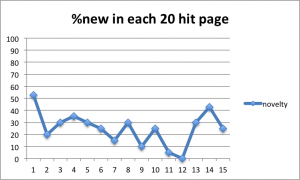
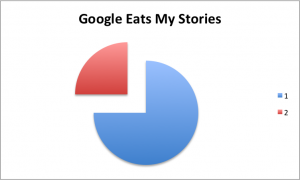
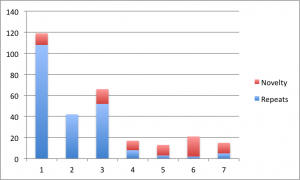
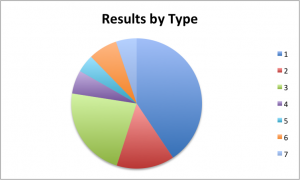
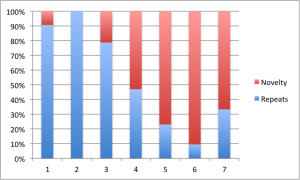
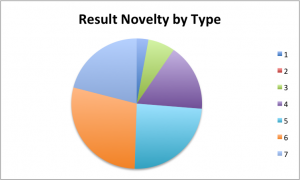


Leave a Reply